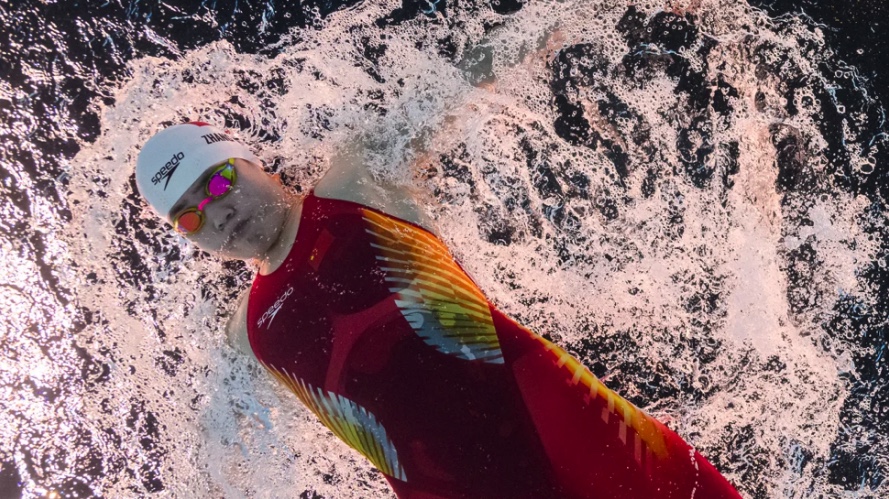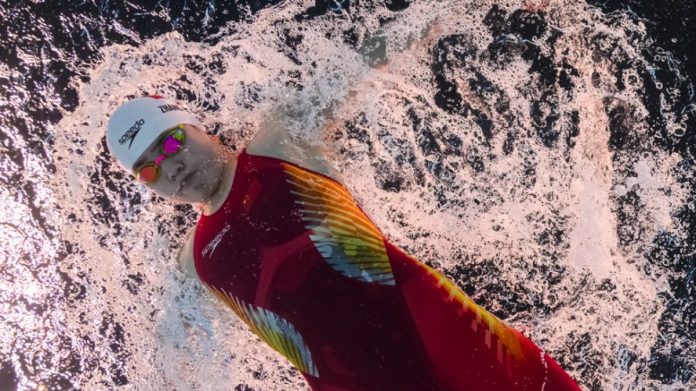ภายใน 72 ชั่วโมงหลังจากเริ่มต้นการแข่งขันกีฬาโอลิมปิกที่ปารีส จาง หยูเฟย นักว่ายน้ำชื่อดังของจีนได้ยืนบนโพเดี้ยมของแชมป์เปี้ยนมาแล้วสองครั้ง อดีตผู้ชนะเลิศเหรียญทองคว้าสองเหรียญทองแดงในขณะที่จีนพยายามเอาชนะคู่แข่งอย่างสหรัฐอเมริกาและออสเตรเลีย อย่างไรก็ตาม จาง ซึ่งได้รับการขนานนามว่าเป็น “ราชินีผีเสื้อ” ของจีน ต้องเผชิญกับการตรวจสอบอย่างละเอียดจากทั้งแฟนๆ ของเธอและชุมชนกีฬาในวงกว้าง ทีมจีนกำลังพัวพันกับการโต้เถียงภายหลังการเปิดเผยที่เกือบครึ่งหนึ่งของนักกีฬาปักกิ่งส่งไปแข่งขันกีฬาโอลิมปิกที่โตเกียวในปี 2564 รวมถึงจาง ได้ทำการทดสอบในเชิงบวกสำหรับสารเพิ่มประสิทธิภาพที่ถูกแบนเมื่อหลายเดือนก่อน ขณะที่การแข่งขันเริ่มขึ้นในสุดสัปดาห์นี้ จางกล่าวกับผู้สื่อข่าวว่าเธอกังวลอย่างยิ่ง ว่านักกีฬาคนอื่นๆ จะมองเธอผ่านเลนส์ที่มีอคติ และลังเลที่จะแข่งขันกับเธอ
ไม่นานก่อนการแข่งขันโตเกียวเกมส์ หน่วยงานต่อต้านการใช้สารกระตุ้นของจีน (CHINADA) ได้เคลียร์นักว่ายน้ำหลายคน รวมถึงจาง หยูเฟย หลังจากตัดสินว่าผลการทดสอบเชิงบวกสำหรับยาไตรเมทาซิดีนที่เป็นยารักษาโรคหัวใจที่ถูกแบนนั้นเกิดจากการปนเปื้อน ซึ่งน่าจะมาจากร้านอาหารของโรงแรม หน่วยงานต่อต้านการใช้สารกระตุ้นโลก (WADA) ยอมรับเรื่องนี้โดยไม่ต้องอุทธรณ์ สถานการณ์นี้ ซึ่งรายงานครั้งแรกโดย New York Times และผู้ประกาศข่าวสาธารณะของเยอรมนี ARD ได้ก่อให้เกิดการตอบโต้ในโลกของการว่ายน้ำ ซึ่งการละเมิดการใช้สารต้องห้ามอาจนำไปสู่การแบนที่ยาวนาน ความกังวลเพิ่มมากขึ้นเมื่อ WADA เปิดเผยกรณีในปี 2565 ที่นักว่ายน้ำชาวจีน 2 คนมีผลการทดสอบในเชิงบวกสำหรับเมธานเดียโนนสเตียรอยด์ที่ถูกแบน พวกเขาถูกระงับชั่วคราว แต่ CHINADA เคลียร์ในภายหลัง โดยกล่าวว่ามีการปนเปื้อนในอาหาร
ในประเทศจีน ซึ่งมีทีมว่ายน้ำเป็นความภาคภูมิใจของโอลิมปิก สถานการณ์ดังกล่าวได้จุดชนวนให้เกิดความไม่พอใจและข้อกล่าวหาว่ามีการปฏิบัติอย่างไม่ยุติธรรม โซเชียลมีเดียของจีนได้รับเสียงสนับสนุนอย่างล้นหลามให้กับ จาง ในช่วงสุดสัปดาห์ โดยกระตุ้นให้เธอไม่ต้องเสียใจกับการจบอันดับสามของเธอในการแข่งขันผีเสื้อ 100 เมตร เมื่อต้นเดือนที่ผ่านมา World Aquatics ยอมรับว่าคดีในปี 2564 ได้ “ทำให้ความเชื่อมั่นในระบบต่อต้านการใช้สารกระตุ้น” ลดลง และให้คำมั่นที่จะทดสอบนักกีฬาบางคน รวมถึงนักว่ายน้ำชาวจีน บ่อยขึ้นในระหว่างการแข่งขันกีฬาที่ปารีส เมื่อสัปดาห์ที่แล้ว World Aquatics ระบุว่านักว่ายน้ำชาวจีนได้รับการทดสอบมากกว่าประเทศอื่นๆ โดยเฉลี่ย 21 ครั้งต่อนักว่ายน้ำ 1 คนนับตั้งแต่ต้นปี เมื่อนักข่าวสื่อของรัฐจีนตั้งคำถามเกี่ยวกับกฎเกณฑ์การทดสอบในการบรรยายสรุปที่ปารีสเมื่อสัปดาห์ที่แล้ว เจ้าหน้าที่ WADA กล่าวว่านักว่ายน้ำชาวจีนควรดีใจที่พวกเขาสามารถแสดงได้ว่าตนได้รับการทดสอบมาหลายครั้งแล้ว หวังว่าจะพิสูจน์หักล้างข้อกล่าวหาที่ไม่ถูกต้องต่อพวกเขาได้
China’s doping scandal casts a shadow over Olympic swimming.

Within 72 hours of the start of the Paris Olympics, star Chinese swimmer Zhang Yufei had already stood on the champions’ podium twice. The former gold medallist secured two bronzes as China strives to surpass rivals like the United States and Australia. However, Zhang, dubbed China’s “butterfly stroke queen,” faces scrutiny from both her fans and the broader sporting community. The Chinese team is embroiled in controversy following revelations that nearly half the athletes Beijing sent to the Tokyo Olympics in 2021, including Zhang, had tested positive for a banned performance-enhancing substance months earlier. As races commenced this weekend, Zhang told reporters she was “deeply worried” that other athletes would view her through a “biassed lens” and be hesitant to compete against her.
Shortly before the Tokyo Games, China’s Anti-Doping Agency (CHINADA) cleared several swimmers, including Zhang Yufei, after ruling their positive tests for the banned heart drug trimetazidine were due to contamination, likely from a hotel restaurant. The World Anti-Doping Agency (WADA) accepted this without an appeal. This situation, first reported by the New York Times and German public broadcaster ARD, has caused backlash in the swimming world, where doping violations can lead to lengthy bans. Concerns grew further when WADA revealed a 2022 case where two Chinese swimmers tested positive for the banned steroid methandienone. They were provisionally suspended but later cleared by CHINADA, citing food contamination.
In China, where the swim team is a source of Olympic pride, the situation has sparked outrage and accusations of unfair treatment. Chinese social media saw an outpouring of support for Zhang over the weekend, urging her not to be upset about her third-place finish in the 100-metre butterfly. Earlier this month, World Aquatics acknowledged that the 2021 case had “weakened” trust in its anti-doping system and pledged to test certain athletes, including Chinese swimmers, more frequently during the Paris Games. Last week, World Aquatics stated that Chinese swimmers have been tested more than any other countries, averaging 21 times per swimmer since the start of the year. When questioned by a Chinese state media reporter about the testing regime at a Paris briefing last week, a WADA official said the Chinese swimmers should be happy that they can show they’ve been tested so many times, thereby hopefully disproving the wrong allegations against them.
By CNN NEWS

















